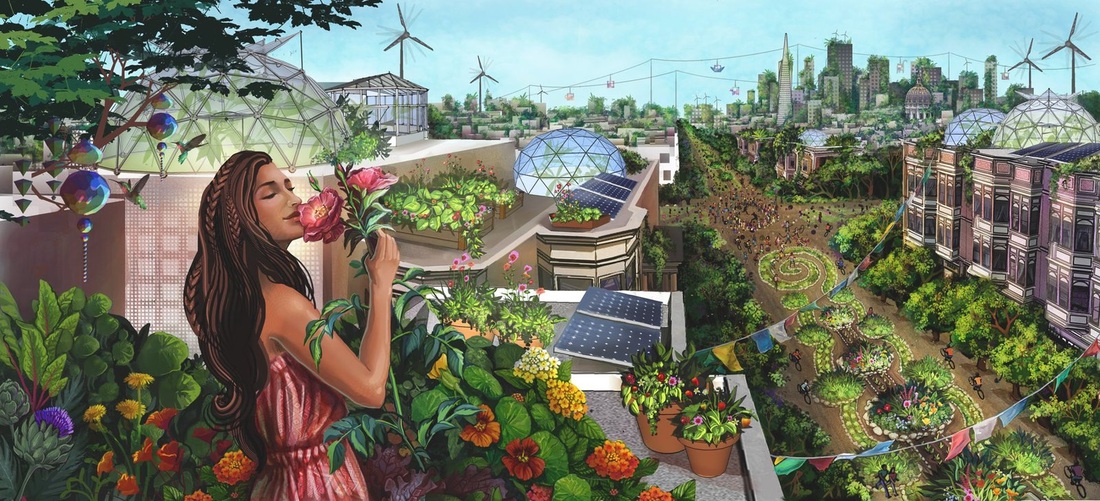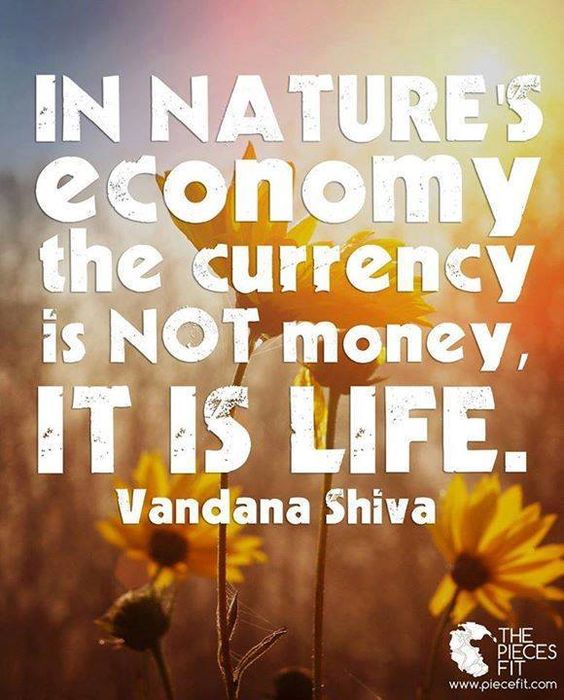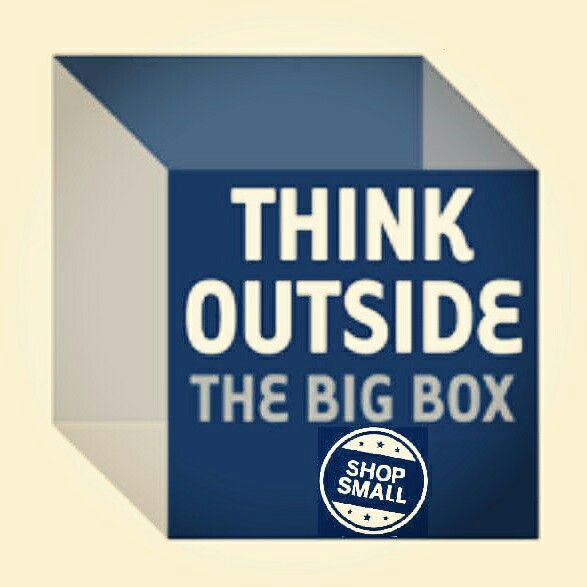What is the Sacred Economy? It is an economic system based on honouring all exchanges as sacred. It looks to protect the earth as much as it looks to maintain the wellbeing of all member of society. It’s an agreement to use money responsibility and intelligently, taking all life into consideration with every purchase or exchange of goods and services.
My step-father always said, “never go for the underdogs because that means you’ll end up being an underdog too”, and “you care too much about things and other people, just worry about getting ahead yourself.” Both my parent grew up extremely poor so they knew the hardships of poverty and what it took to make their way out of lack and scarcity. Getting ahead for them often meant only looking out for themselves because let’s face it, poverty brings out competition within the pack. When people are in scarcity, survival instincts kick in and that primal force usually overrides more developed parts of the brain that help us consider greater factors than just our basic survival needs, such as the well being of the we vs the me.
In parts of the world where the standards of living have increased and people are feeling a little more comfortable, we actually have time to re-evaluate how we can re-align our priorities through the reaches of our own purchasing power. It’s true many are still caught-up in the comfort zones of accessibility and seeking trend over making responsible decisions impacting the long chain of people and natural resources being impacted behind every purchase. As time progresses we’re being forced to see that we can’t continue to exploit our natural resources like we used to. The health of everyone is now being affected to varying degrees in different parts of the world and crushing down into the western markets more and more. The industrial revolution wasn’t that long ago compared to our existence here on the planet and look how much we’ve managed to exploit the earth in such a short period of time, approximately a measly two hundred and fifty years. The implications are maddening and are foretelling of what will soon come if we don’t return to living more in harmony with Mother Nature and treating every last exchange as sacred.
The main issue for those investing big money, those investments that have a larger control of where the market is supported, those who are well intentioned and seek to do good in the world just often don’t have the integrity to follow through when it comes down to it, people will almost always opt for maximum growth with the greatest potential of returns. People have trouble thinking long term because in general we are more concerned with short term benefits. We are a greedy species, gluttons, constantly obsessed with wanting more. It’s amazing how everyone’s values fly out the window when it comes down to the dotted line. Many people haven’t felt the need to even reflect on what sort of impact the companies they’re investing in or are creating have on the planet, future generations, or simply the general wellbeing of their own family.
So how do we begin to use our money so that we’re creating a future more aligned with our values? At the end of the day most people are the same, we’re humans looking to have our needs met, looking to be loved, wanting fresh water, food and shelter, with money for travel, creative projects and recreation. The sacred economic model proposes that we support local and support people verses supporting corporations that don’t value people and natural resources or people that don’t value other people for that matter.
Essentially we are looking to redistribute wealth within communities rather than have it all funnel into a small percentage of the population constantly looking to downsize costs (quality) while simultaneously increasing profit margins. Now stop right here. I know many of you reading this have actually worked your butts off your whole life and might be thinking, I want to reap the benefits of my hard work and yes you can. The sacred economy doesn’t proposes that those working diligently towards increasing the overall comfort of their families shouldn’t be rewarded. What it proposes is to use those hard earned dollars to support diversity and life itself. Use it to support people, companies with values, local and small family owned businesses, support your neighbours offerings and products. By supporting local we decrease poverty within our communities, naturally decreasing crime, communities in general begin to work more harmoniously together and natural resources are less likely to be exploited.
Our basic requirements are food, clothing, shelter and then you have creative, recreation and entertainment. Facilitating a sacred economy means creating things that you can sell which meet basic needs and our need for play. Creating businesses with consideration of the limitations of natural resources, re-purposing where we can and buying things that will support everyone’s overall wellbeing.
Not that long ago and still in many places in the world when you need clothes you go to your local seamstress and clothing designer or the closest farmer to buy your milk and carrots. Supporting local means getting our thinking caps on and re-organizing ourselves so that we’re no longer dependant on the same stores to supply us with everything. It means buying responsibly over buying what’s currently trendy on the market. People that I speak to about this stuff often say there isn’t enough diversity in local markets but the catch 22 is that if local markets were to be supported, more diversity would flourish again, sure eating local means eating a less interesting diet but it also means eating according to what is best suited to that particular geographical climate. Buy things directly from people, buy it out their trunks, buy the bees wax candles Jim is selling down the street, just buy where it counts and where you know the money is being re-injected back into your community.
Big coffee houses for example are taking over, such as Starbucks and Tim Hortons, not because people would rather buy from a franchise but because there’s less and less diversity to be had and we’re basically being brain washed with advertising. I personally love walking into a small coffee shops that has their own style and aren’t a cookie cut-out of a thousands others. A place where you can find interesting art on the walls and little homemade treats that you can’t find anywhere else.
Supporting diversity and local means maintaining power over community growth and prosperity. It supports individual flourishing of community members. If you can live with a little less to support the greater cause of de-centralizing power, removing power from the hands of corrupt political agenda’s and conglomerates dehumanizing our markets, you can begin to start dreaming about creating your own local soul centric business with a much higher success rate, thriving once again in harmony with the earth.
The success rate of a small business is so small here in Montreal for example, it stands to survive somewhere around ten percent of the time after its first year in business. The scary part is that Montreal or even down town Toronto for example is pretty diverse itself compared to many places in the US. To break it down even more, start supporting the businesses those owners are aligned with similar values to yours, get to know the people behind the store fronts.
The general public only run to the big box stores such as Costco and Walmart, where products are often sourced abroad at lower cost because of convenience and cost effectiveness. We lack education in this department, our health is undermined when it comes down to the food we consume and the products we use because we don’t fully grasp how who we by from and where we buy from affects all other aspects of our lives.
Compiled onto this, our collective lack of self-worth and conditioned disempowerment has been exploiting us from the inside out. This is especially apparent in the woman’s fashion and cosmetic industry but it trickles into almost every aspect of our modern purchasing. To feel important and cool, people want to fit into a certain model of what society deems as luxurious because wealth represents power and power represents freedom. We all want to feel free in a world that doesn’t value human life. The subliminal or in-your-face messages are clear as we surf the net or travel to certain places in the world. If you’re looking to honour your freedom, begin to honour the businesses, people and services in your local community, period. We allow value to be placed on brands and trendy items through our purchasing power. If we don’t purchase them, they in turn have no value.
People in general have trouble stepping outside of the current models and system because almost everyone fears trying new things. There is so much fear in taking money into our own hands because we’ve been taught that money is separate from ourselves. We’ve lost focus that it’s simply a global agreement, nothing less and nothing more. It’s basically energy and if we continue to let it be controlled by a small number of people that systemically outsource work and gobble resources while simultaneously looking to only increase profit margins we’re not going to survive much longer. We’re already tittering on the brink of global disaster.
Ignorance is this sense is bliss because it removes us from responsibly taking control of our economic system in exchange for temporary purchasing highs that feed on the lesser ego and don’t require too much brain power. I say it’s time we started buying responsibly and locally again, putting our money where our mouths are and being smart enough to stop buying into a system that only wishes to separate us further from our responsibility towards each other and the planet earth.
This is really informative video to watch
Blasting Love
Image sources


